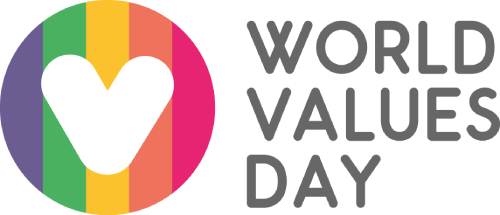In a world increasingly preoccupied with the mechanics of health systems—budgets, technology, and targets—one voice is cutting through with a different emphasis: values. Dr Bettina Buabeng-Baidoo, a South African physician and public health scholar, is leading an ambitious global initiative that seeks to reframe healthcare not only as a technical or economic challenge, but as a moral one.
The project, the Movement for Equitable & Sustainable Healthcare (MESH), has grown from a collaboration between the Dr Buabeng-Baidoo’s International Working Group for Health Systems Strengthening, World Values Day, experienced public policy expert Katrina Ramage of Tarakin Global, Dr Prabodh Mistry and other individuals and organisations around the world. Its central conviction is deceptively simple: healthcare must be treated as a human right, and quality of care must be rooted in values such as dignity, justice, solidarity, and compassion.
From South Africa to the World Stage
Buabeng-Baidoo, a Mandela-Rhodes Scholar with a background in both medicine and public health, has seen first-hand the consequences of values being neglected in healthcare. She and her colleagues cite the harrowing Life Esidimeni tragedy, in which over 1,400 vulnerable patients were transferred from specialised facilities to ill-prepared institutions—with nearly one in ten dying as a result—as a stark warning of what happens when cost-cutting eclipses care.
It is this moral urgency that animates MESH’s work. The initiative has effectively become the spearhead of the Values20 (V20) health stream – V20 is a civil society engagement group that feeds recommendations into the G20. Under Buabeng-Baidoo’s leadership, MESH has prepared a landmark paper, Health as a Human Right: Pathways to Equity in Access and Delivery, offering practical pathways to integrate values into global health policy.
Values20 and the Global Dialogue
The healthcare chapter of this year’s V20 Communiqué—to be presented at the V20 Summit in South Africa on 16th and 17th October—bears the imprint of MESH’s research and advocacy. It argues forcefully that universal access must be coupled with universal dignity: that quality of care cannot be separated from the way patients are treated, respected, and heard.
To build momentum ahead of the Summit, MESH has convened a series of international dialogues including:
- Community and Ubuntu – A Cross-Continental Dialogue on Shared Values (25th September), exploring parallels between South Africa’s concept of Ubuntu and community traditions in the United States.
- Embedding Values to Improve Quality of Care: A Global Dialogue (8th October), co-hosted with Oxford University’s Collaborating Centre for Values-Based Practice in Health and Social Care, Values20 South Africa, and World Values Day. This event will spotlight case studies and recommendations for the G20, and feature leading voices from law, philosophy, medicine, and advocacy. Book your place for this free event here.
- A plenary session at the V20 Summit itself (17th October), which will bring together organisations such as Africa CDC, UCT Global Surgery, and Section27 to reflect on how values can be systematically embedded in health systems. You can join this session in person or online at 13.00 UK time (14.00 South Africa time) on 17th October after registering for the Summit here.
World Values Day and Beyond
World Values Day (WVD), a longstanding champion of the role of values in public life, has been closely entwined with the MESH journey and the V20 journey. This year’s WVD coincides with the V20 process, and the “Embedding Values to Improve Quality of Care” dialogue on 8th October forms part of its global Valuesthon programme.
Charles Fowler, Global Coordinator of WVD and a fellow delegate at the V20, describes the collaboration as “a breakthrough moment for values-based policy making in healthcare”.
As Katrina Ramage adds: “What MESH has already achieved is to demonstrate that values are not abstract ideals. They are the essential levers of justice and sustainability in healthcare—and, without them, health systems fail the people they are meant to serve.”
The work will not end with the Summit. A follow-up gathering is already planned for early 2026 to assess the uptake of the MESH/V20 recommendations by G20 leaders. For Buabeng-Baidoo, the hope is clear: that policymakers will begin to see healthcare not just as a service to be delivered, but as a moral commitment to uphold the dignity of every human being.
In an era marked by widening inequalities in health outcomes between the Global North and South, MESH insists that values are not a luxury but a necessity. As Buabeng-Baidoo herself has said, “We cannot build sustainable health systems without embedding the values that sustain humanity.”


